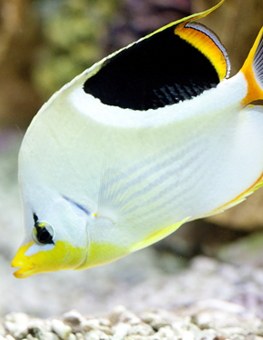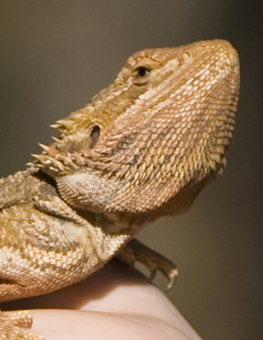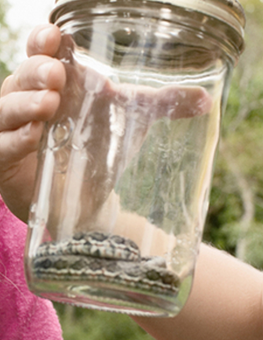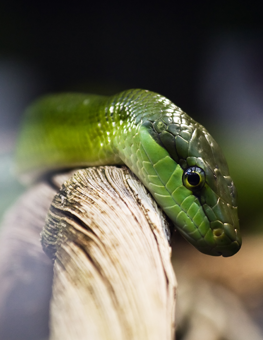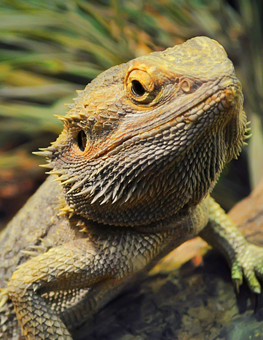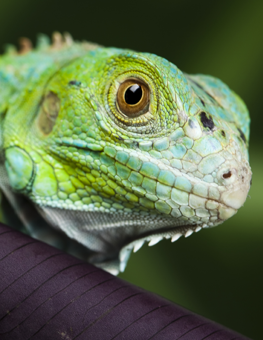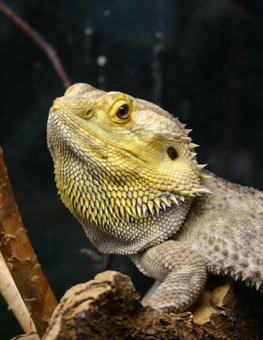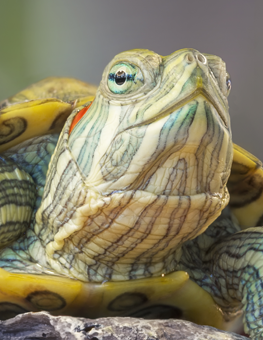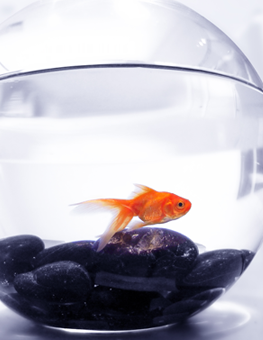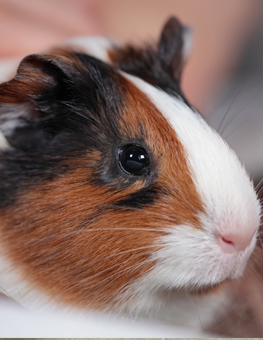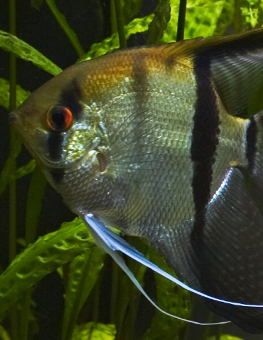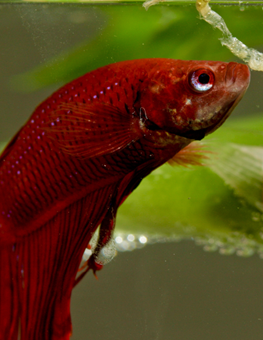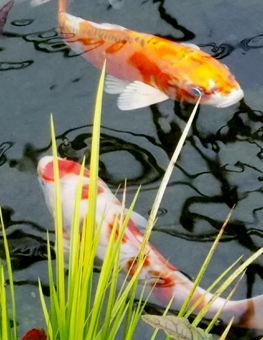Keeping Your Reptile Clean
Use your nose as well as your eyes to determine whether your reptile is clean.
Most reptiles are messy. They do a lot of digging, disruption of their substrate, shedding, water splashing and defecating. In nature, these factors present no particular problem to the reptile on the run. In the confines of your reptile's vivarium, however, these natural habits can become harmful, and an unclean environment will soon breed disease-causing bacteria and other pathogens. To stay on top of the situation, remember that the health of your reptile on the inside is very often reflected by its appearance on the outside.
Hygiene checklist
Some things to look for when you are assessing your pet's health:
- Does his skin look healthy — is it properly colored?
- Is he excessively scratching or rubbing? Are his eyes clear and free of crust?
- Is there any evidence of mouth rot?
- Is his tail robust or is it damaged or missing altogether?
- Is he shedding his skin on a regular basis and doing so without difficulty?
- Is he eating well, drinking and bathing regularly?
Many of these symptoms are a response to poor nutrition or parasitic diseases. Your reptile's cage or housing is the prime source of skin and bacterial infections and must be kept scrupulously clean. Regular cleaning and disinfection also help to manage bacteria like Salmonella, which can cause illness in humans.
Keeping your vivarium clean
The smell of an unclean reptile habitat will be easily noticed. While unpleasant for you, it can also harm your reptile. Odor can interfere with a reptile's olfactory system, which is vital for its hunting and feeding regimens. Fortunately, keeping the vivarium clean is a straightforward task:
- Change the drinking and bathing water every day.
- Clean or replace the substrate every other day or weekly.
- Promptly remove uneaten food (especially anything that will decay).
- Clean the decorative and functional accessories within the vivarium on a regular basis.
Keeping your vivarium safe
Beyond regular cleaning practices, also carry out these critical inspections:
- Check for frayed or cracked wires and look for evidence that the reptile may have chewed or clawed any wiring.
- Make sure that heating elements are indeed working, and replace light bulbs within the manufacturer's recommended time span.
- Lighting provides spectrum wavelengths that are crucial for reptile metabolism and general health. Most light bulbs lose some of these wavelengths long before the bulb stops emitting light altogether, so don’t wait for the lights to go out before replacing the bulb.




